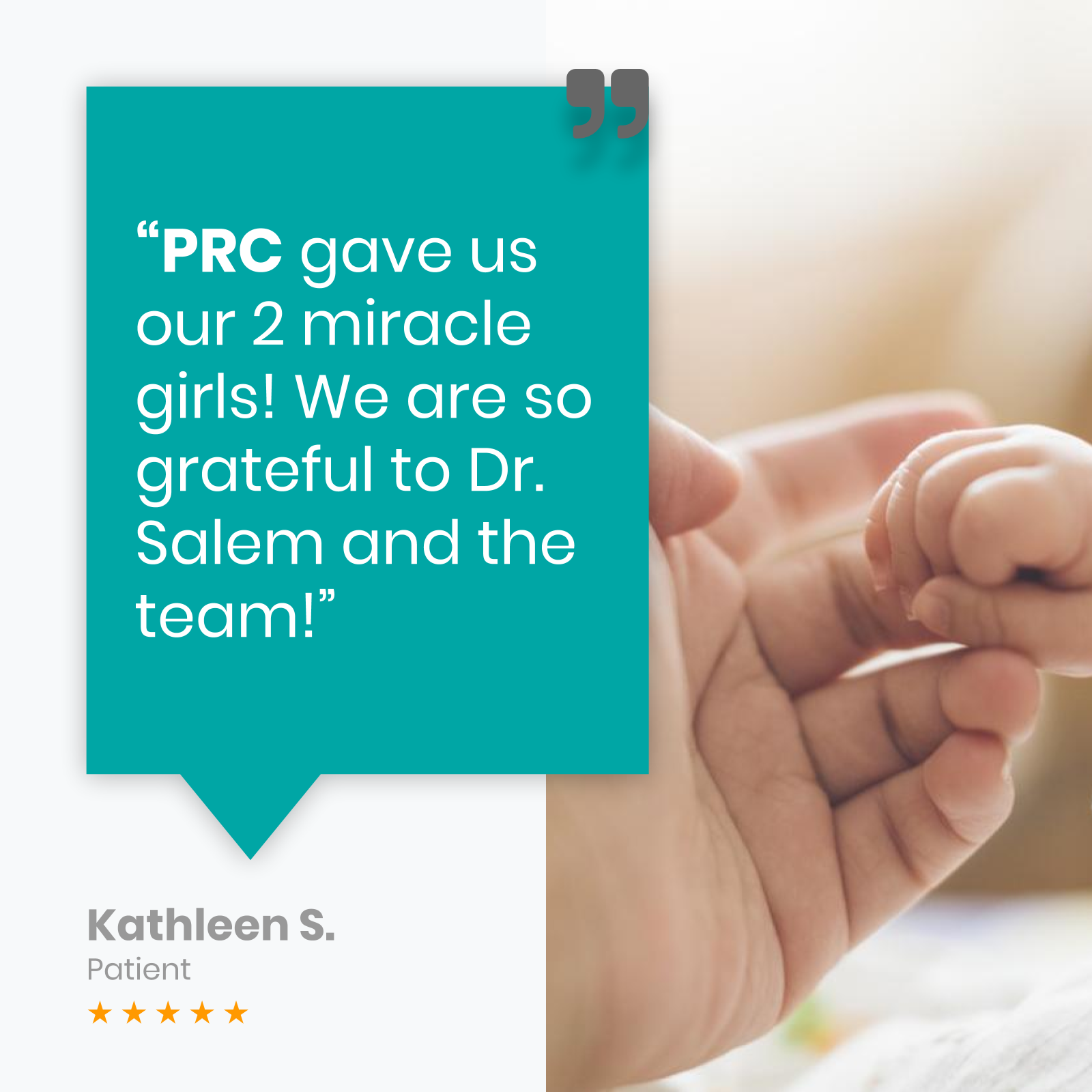Offering personalized and compassionate fertility treatment that meets you where you are.
In the United States alone, 1 in 5 women struggle with infertility, especially those who have not given birth before, according to the CDC.
While infertility can take a mental, emotional, and physical toll on women and families who want to become pregnant, it doesn’t have to be that way forever. That’s where in vitro fertilization (IVF) comes in.
If you’re hoping to find a top Orange County in vitro fertilization clinic, we are here to help.
Let’s discuss IVF in greater detail, including what it is, the steps involved, the factors affecting the IVF success rate, and see if you’re a good candidate.
What is IVF?
IVF, or in vitro fertilization, is a fertility treatment used to help women reproduce successfully. It has been around for over three decades and evolved from a niche procedure into one of the world’s most widely used fertility treatments.
The IVF procedure facilitates pregnancy through a step-by-step process involving fertility medications, surgical intervention, laboratory science, and implantation.
A Step-by-Step Look at the IVF Treatment Process
Step One: Ovulation Induction
The first step in IVF is egg maturation.
For parents who are not using a donor, the female partner is administered ovulation induction medications that accelerate egg production. This process allows multiple eggs to be produced, thereby increasing the possibility of successful fertilization.
Step Two: Egg Retrieval
When the eggs have matured, they are extracted through a minimally invasive surgery called transvaginal ultrasound aspiration.
It involves inserting a device into the vagina that allows the surgeon to view the egg follicles within the ovaries.
Once the egg follicles have been identified, a needle is inserted through the device, gently pulling the mature eggs from the follicles. The patient is given medication that minimizes discomfort, but sedation is not required.
Step Three: Intracytoplasmic Sperm Injection (ICSI)
Once the eggs have been retrieved, those with the greatest potential for successful fertilization are prepared for introduction to the sperm cells provided by the partner or donor.
Though many patients opt for conventional insemination – when eggs are stored with sperm overnight in an incubation process – some patients elect to fertilize the eggs using intracytoplasmic sperm injection (ICSI).
This is when an individual healthy sperm cell is injected into the egg. ICSI is typically advised when male infertility is a contributing factor.
Step Four: Assisted Hatching
Once the egg is fertilized, the embryo undergoes assisted hatching. This is where the firm outer cellular layer (zona pellucida) is pierced to enable the embryo’s attachment to the uterus.
Step Five: Embryo Transfer
The final step of IVF before pregnancy is embryo transfer.
This involves the vaginal insertion of a catheter and syringe through which the embryo is passed into the uterine cavity.
If the embryo attaches successfully to the uterine wall, pregnancy will occur. This generally takes place between one week and ten days post-egg retrieval.
It is essential to know that the entire IVF process, up to embryo transfer, can take up to two months to complete.
How Long Does the IVF Timeline Take?
The IVF timeline can vary between two and six weeks, depending on how you respond to hormone medications, embryo quality, embryo development, and your personalized treatment plan.
Factors Affecting IVF Success Rate
There are various success rate factors for an IVF procedure, including
- reproductive history
- the age of the mother
- the cause(s) of infertility
- lifestyle factors
Age is one of the most significant factors in fertility. In the US, the live birth rate for women under 35 is 41-43%. However, the rate diminishes with age such that for women over 40, it is between 13-18%.
Your reproductive support team at PRC will guide you through the IVF process and develop a customized treatment plan that maximizes your probability of welcoming a beautiful baby into your family.
While IVF has helped many parents achieve healthy pregnancies, certain factors can still help or hinder your chances of a successful birth.
Is There an IVF Age Limit?
In vitro fertilization does not have a strict age limit, but, as mentioned, age significantly influences treatment success.
Females are typically advised to undergo IVF before the age of 50, as advanced maternal age diminishes egg quality and quantity, impacting fertility rates and increasing pregnancy risks, particularly after age 40.
While male age less commonly affects IVF outcomes, advanced paternal age may still impact sperm quality and offspring health.
Overall health status is crucial for IVF success, and pre-existing medical conditions can affect treatment outcomes.
PRC Delivers Successful Outcomes with IVF
IVF at our California clinic, has delivered successful outcomes for potential parents experiencing the following fertility difficulties:
- Patients with blockages in the fallopian tubes
- Patients experiencing unexplained infertility
- Patients with endometriosis
- Patients with fibroid growths
- Patients who have undergone tubal ligation
- Patients with low sperm count or poor sperm motility
- Patients seeking to preserve fertility before undergoing medical procedures that might inhibit the reproductive capacity
Advanced IVF Treatment in Los Angeles, Glendale, and Beyond
IVF is the most frequently recommended treatment strategy for infertility because it addresses reproductive difficulties experienced by both potential parents.
IVF is an excellent option for same-sex parents, extending the opportunity to experience conception and childbirth in a way that involves both partners.
For many parents who have overcome infertility, IVF is the gold standard of assisted reproductive technology. To learn more, please see our IVF FAQs page.
As a leading IVF clinic in Orange County, we have helped hundreds of patients achieve successful pregnancies with IVF and supplementary treatments yearly at PRC. If you’re struggling with infertility, we can help. Contact us today to to get started.
Treatments
Pacific Reproductive Center has been successfully aiding conception for over two decades. We optimize the conditions of fertility treatment to give every potential parent the greatest chance of successful childbirth.
Resources
We ensure that every patient fully understands their medical condition and treatment options available to them. We understand each patient is unique so we help guide you through the best option to support your own fertility journey.
Looking for the Best Fertility Clinic in Southern California?
Pacific Reproductive Center has four convenient locations throughout Southern California, making it easy for patients to receive quality care close to home. Each IVF fertility center has an on-site lab, next-generation services, and state-of-the-art equipment.
Whether in Glendale, Torrance, Irvine, or Corona, our world-class fertility doctors can help you build the family you’ve always wanted.
3720 Lomita Blvd, Suite 200 Torrance, CA 90505
116 E. Broadway, Suite 300 Glendale, CA 91205
10 Post Irvine, CA 92618
381 Corporate Terrace Corona, CA 92879




